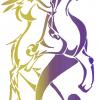Sign in to follow this
Followers
0

tao te ching in original chinese translate directly to english?
By
mewtwo, in General Discussion

By
mewtwo, in General Discussion